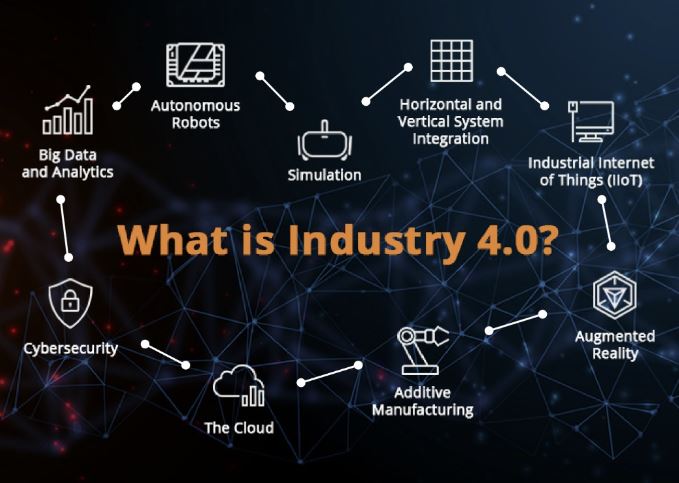Industry 4.0, also known as the fourth industrial revolution, refers to the integration of advanced technologies and data-driven processes in manufacturing and other industries. It represents a new era of smart, interconnected systems that leverage automation, artificial intelligence (AI), the Internet of Things (IoT), cloud computing, big data, and other emerging technologies to create more efficient and productive industrial environments.
Advantages of Industry 4.0:
Increased Efficiency: Industry 4.0 technologies enable streamlined production processes, reducing waste, and optimizing resource utilization. Automated systems can work faster and more consistently than human operators, leading to increased productivity.
Cost Reduction: By optimizing processes, reducing downtime, and improving overall productivity, Industry 4.0 can result in significant cost savings for businesses.
Enhanced Quality: IoT sensors and data analytics can monitor production in real-time, identifying defects or variations early in the process. This helps in maintaining higher product quality and reducing the number of faulty products.
Customization and Personalization: With advanced data analytics and flexible manufacturing processes, Industry 4.0 allows for greater customization of products to meet individual customer needs, leading to improved customer satisfaction.
Predictive Maintenance: IoT sensors and AI algorithms can monitor equipment health and predict maintenance needs, reducing unexpected breakdowns and minimizing downtime.
Supply Chain Optimization: Industry 4.0 technologies enable real-time tracking of inventory and raw materials, improving supply chain efficiency and reducing inventory holding costs.
Remote Monitoring and Control: IoT and cloud technologies enable remote monitoring and control of manufacturing processes, allowing businesses to manage operations from anywhere and respond quickly to changing demands.
Workforce Safety: Automated systems can handle dangerous or repetitive tasks, reducing the risk of accidents and improving worker safety.
Data-Driven Decision Making: Industry 4.0 generates a vast amount of data that can be analyzed to gain valuable insights, helping businesses make more informed decisions and improve overall performance.
Sustainable Practices: By optimizing resource usage and reducing waste, Industry 4.0 can contribute to more sustainable and environmentally friendly manufacturing practices.
It is important to note that while Industry 4.0 offers many advantages, it also comes with challenges, such as cybersecurity risks, the need for upskilling the workforce to work with new technologies, and potential job displacement due to increased automation. Addressing these challenges is crucial for a successful transition to Industry 4.0.
Contact us at GKW Business Solutions on additional information on this subject.




